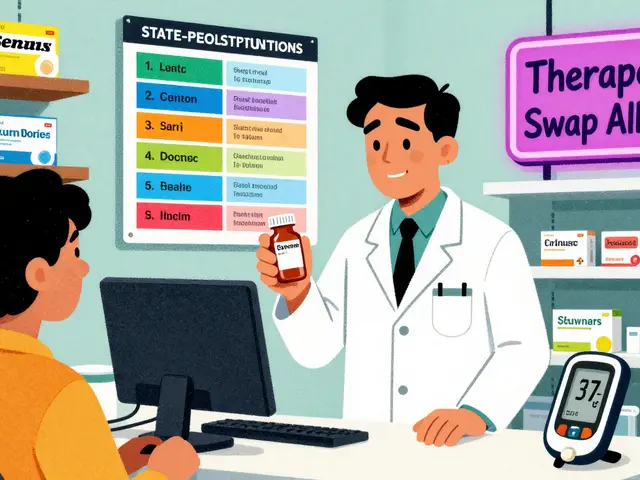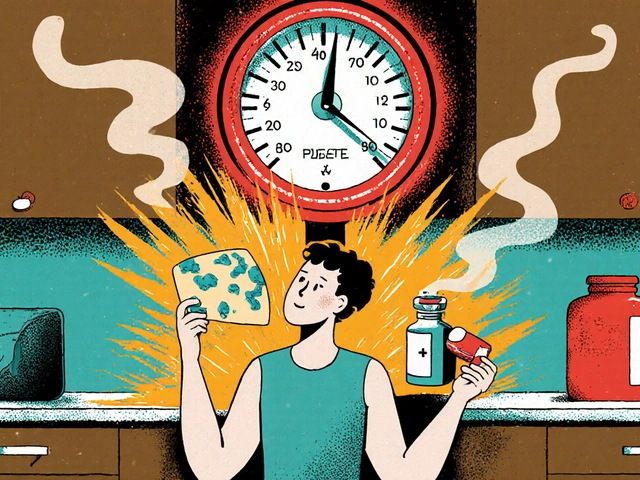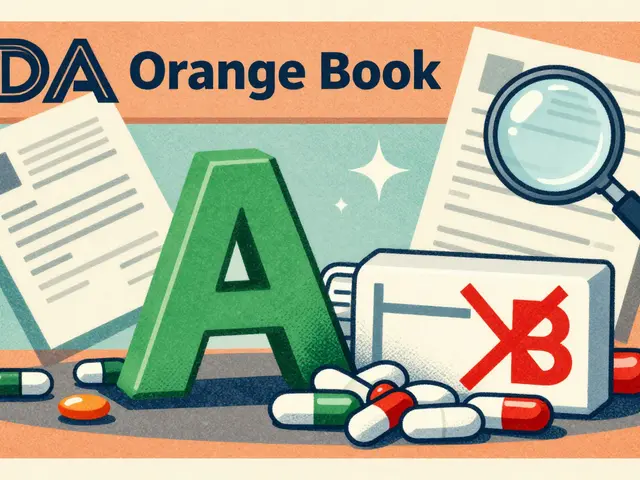Diet: How Food, Supplements and Medicines Work Together
What you eat can change how a drug works — sometimes a little, sometimes a lot. This page pulls together simple, useful tips so you don’t accidentally weaken a medicine, boost side effects, or waste money on supplements that don’t help. No fluff — just clear rules you can use today.
Quick rules that actually help
1) Ask your pharmacist what to avoid. They know common food-drug clashes like grapefruit, vitamin K, and dairy. 2) Keep a medication list with doses and times. Bring it to every doctor visit. 3) Separate certain supplements and minerals from medicines by a few hours — calcium and iron often block absorption of many pills. 4) Stay consistent. If your thyroid pill works when taken on an empty stomach at 7 a.m., keep doing that.
Diet and common meds — practical examples
Grapefruit and some cholesterol or blood-pressure drugs: Grapefruit compounds can raise drug levels and cause side effects. If your script names statins or certain blood-pressure meds, ask whether grapefruit is safe.
Warfarin and leafy greens: Vitamin K in spinach and kale can lower warfarin’s effect. You don’t have to stop greens — just keep your intake steady so your dose stays right.
Thyroid drugs (levothyroxine): Take on an empty stomach and wait 30–60 minutes before eating or taking calcium or iron. Even antacids and some supplements can make the pill less effective. If you use supplements like acetyl-L-carnitine, mention it — some supplements influence thyroid tests and symptoms.
Antibiotics and dairy or antacids: Tetracyclines and some fluoroquinolones bind to calcium and iron in milk or supplements and won’t absorb well. Finish the course, and space dairy or mineral supplements several hours away.
Diabetes meds and carbs: If you’re on glipizide or other sulfonylureas, meal timing and carb consistency matter. Skipping meals raises the risk of low blood sugar. If you plan to change your diet — lower carbs, intermittent fasting — talk to your prescriber first.
Supplements for mood and sleep: SAM-e, rhodiola, omega-3s, valerian and similar products can help—but they also interact with antidepressants or blood thinners. Treat supplements like medicines: list them for your clinician and check possible interactions.
Alcohol and strong meds: Accutane, certain antibiotics, and many psychiatric meds don’t mix well with alcohol. Cutting back on alcohol reduces side effects and helps treatment work better.
Final tip: buying medicines or supplements online? Use reputable sources and check reviews. If a deal seems too good, it probably is. Keep records and talk to your healthcare team before mixing anything new with your current drugs.
Want deeper guides for thyroid, diabetes, mood supplements, or safe online buying? Click the related articles below to read specific, step-by-step advice tailored to each situation.

- Sep 7, 2024
- Posted by Cillian Osterfield
Para-Aminobenzoic Acid Benefits and How Your Diet Can Enhance Them
Discover how Para-Aminobenzoic Acid (PABA) can positively impact your health and learn about the foods that can enhance its benefits. This article delves into the dynamic relationship between PABA and a balanced diet, offering practical tips and fascinating facts to help you make informed choices for better health.
Categories
- Health and Wellness (70)
- Medications (68)
- Health and Medicine (28)
- Pharmacy Services (12)
- Mental Health (9)
- Health and Career (2)
- Medical Research (2)
- Business and Finance (2)
- Health Information (2)
Latest Posts
©2026 heydoctor.su. All rights reserved





